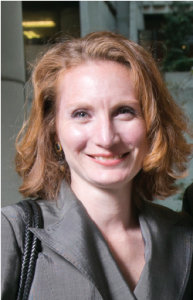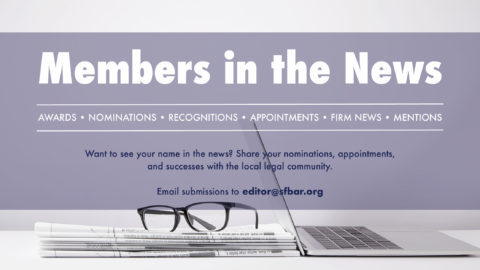
BASF’s Disability Rights Committee Co-Chair Heather Borlase of Bayer & Borlase was recently invited to discuss her volunteer work with BASF/JDC.
BASF: How did you become involved in BASF?
Heather Borlase (HB): I worked for the [Justice & Diversity Center’s] Homeless Advocacy Project through Golden Gate University School of Law in Spring of 2000. I became involved in the Labor and Employment Section of the Barrister’s Club in Fall of 2001. In 2003, that section’s chair, Malcolm Heinicke, invited me to become the vice-chair. Then as chair, we put on 17 programs in 12 months. Since then, I’ve been involved in the Conference of Delegates and served on the Barristers Board of Directors from 2005 to 2006.
BASF: What made you decide to co-chair the Equality Committee on Disability Rights?
HB: My practice focuses on representing employees in all matters of employment law. I have done a lot of work in the disability arena, helping educate employees about their rights, helping people get reasonable accommodations, and litigating discrimination, harassment and retaliation cases involving disability-and leave-related issues. In 2013, I received word from BASF that the Disability Rights Committee was looking for a co-chair.
BASF: What are your initiatives during your tenure?
HB: We want to create a space where people can share their fears and concerns about having, employing or working with people who have disabilities, where they can learn from each other, and can ultimately shed inaccurate ideas about each other. We want to highlight and celebrate positive employment relationships involving disability challenges, such as our annual CLE program on Recruiting, Training and Retaining Employees with Disabilities.
BASF: What legal trends do you foresee as they pertain to disability rights issues in 2015-2016?
HB: I am excited about the accommodation possibilities that are being created by new technologies, and about attitudinal changes towards people with physical or mental disabilities. Many new and old technologies, combined with some creative thinking and a willingness to accept change can empower a whole group of people with disabilities to thrive in their professional lives in a way that was never before contemplated.




